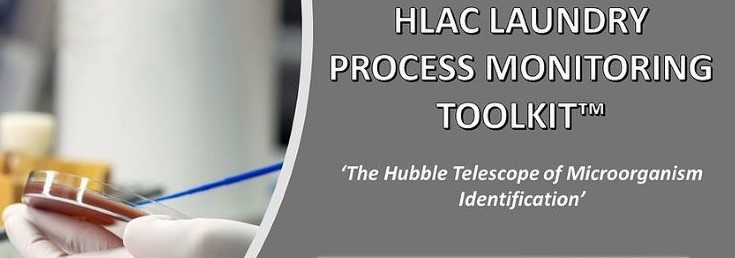
The Healthcare Laundry Accreditation Council (HLAC) is marking its 15th year in 2021 as a nonprofit organization that inspects and accredits laundries that process reusable textiles for hospitals, nursing homes, and other healthcare facilities.
HLAC, incorporated in 2005, began actively inspecting and accrediting laundries in 2006 in response to years of requests from textile professionals for an independent accrediting body that would create a program of accreditation acknowledging that a laundry organization meets the highest standards for processing textiles.
“We’ve always enjoyed steady growth each year in the number of healthcare laundries wanting to achieve HLAC accreditation,” said Linda McCurdy, HLAC board president. “But this past year has been a busy one, especially with the coronavirus pandemic. We’ve seen progressively greater interest in our standards and this includes increasing attention from a broader professional audience beyond operators of healthcare laundries. From infection prevention (IP) managers in hospitals and senior-living communities, to those in charge of hygiene in schools, hospitality lodging and even correctional facilities, IP professionals are beginning to realize that HLAC standards can provide viable safeguards in their efforts to tackle pandemic challenges and beyond.”
Standards Based on Federal Regulation, Best Industry Practices
HLAC inspected and accredited laundries process healthcare textiles (HCTs) based on standards for patient safety and infection prevention. These HLAC Accreditation Standards have been developed based on federal regulations and guidelines as well as best industry practices.
“Being familiar with our standards makes all the difference for a laundry because it enables it to keep pace with the growing complexities of processing healthcare linens,” McCurdy said.
The standards are established as the minimum acceptable practice for the preparation of hygienically clean, reusable healthcare textiles for patient care, implemented and executed by accredited laundry facilities processing reusable healthcare textiles. The HLAC Accreditation Standards document, “Accreditation Standards for Processing Reusable Textiles for Use in Healthcare Facilities,” covers the complete textile processing cycle and pays special attention to laundry processes directly related to patient safety and OSHA-required practices, including Bloodborne Pathogen Exposure Control Standards.
What It Means to be Accredited
There are currently more than 160 accredited laundries in the USA and Canada.
HLAC accreditation, which is good for three years, affirms that a laundry organization that processes HCTs has successfully passed inspection of the following: its facility, policies and procedures, training programs, and its relationship with its healthcare customers.
HLAC inspectors are independent contractors selected by HLAC’s board of directors. Inspectors have wide-ranging experience in the industry, including with healthcare systems, in environmental services, laundry production and operations, laundry facility planning and design, linen management, nursing, occupational safety, and infection prevention and control.
Each inspector is provided with in-depth training of HLAC standards and inspection guidelines before they begin their work.
“The inspection is an important part of the accreditation process,” McCurdy said. “Going through the inspection process should help a laundry to unite its efforts to become much stronger – smarter and more competent in processing healthcare textiles – and this should enable them to provide their healthcare customers with an improved level of service ultimately benefitting patient safety.”
“There have been many dedicated individuals who have been involved in the advancement of HLAC and its mission, and in the development and evolution of its nationally recognized standards. We can all take great pride in knowing that HLAC today is an important part of the safety solution in healthcare’s ever-urgent effort to protect patients through the prevention of infections,” said McCurdy.













